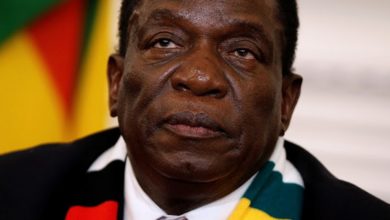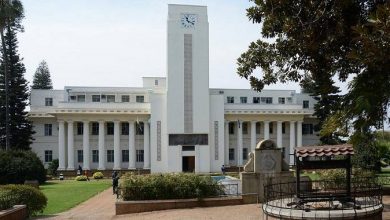ZESN sounds alarm on 2023 election environment

The Zimbabwe Election Support Network (ZESN) remains concerned that the 2023 elections will take place without significant political, legal, and administrative electoral reforms.
This comes after local, regional, and international observers made numerous recommendations during the 2018 harmonised elections to enhance the management and conduct of elections in Zimbabwe.
Zimbabwe will hold its harmonised elections, namely the Local Authority, National Assembly, and Presidential elections, tomorrow, on Wednesday, August 23, 2023.
Although ZESN said the Zimbabwe Electoral Commission (ZEC) undertook some administrative reforms to improve its management of key electoral processes, there were still outstanding reforms that ought to have been addressed ahead of the 2023 polls.
“These include the domestication of the African Charter on Democracy, Governance and Elections (ACDEG), the need to create a conducive electoral environment for effective participation of citizens without fear; availing of the voters’ roll on time; the need for tactile ballot papers to ensure secrecy of the vote for persons with visual impairment; enhanced transparency and accountability in all key electoral processes (voter registration, delimitation, printing of ballot papers among others,” ZESN said in its pre-election statement.
“Review of the accreditation committee and process, removal of the accreditation fees for domestic observers and the need to ensure punitive measures are put in place to address the violence against women in elections.”
By not implementing the above-recommended reforms, ZESN said Zimbabwe has lost an opportunity of enhancing its electoral integrity and alignment of its laws with the ACDEG and the revised SADC Principles and Guidelines Governing Democratic Elections.
With elections being held under new electoral boundaries, ZESN said these were shrouded in controversies that included, the inadequate stakeholder engagements, reliance on a preliminary Census report (as opposed to the final report) and the formula applied in determining average voter population for each constituency.
ZESN added it was concerned the 2023 elections were highly litigated, presenting challenges to the credibility of the election.
“When the Nomination Court sat, some political parties faced challenges with the payment system, as the point of sale machines were failing. This delayed the process with prospective candidates spending long hours waiting to file their nomination papers. A good number of candidates from the MDC-T and United Zimbabwe Alliance were disenfranchised in the process,” said the network.
To avoid delays in processing nomination papers, ZESN recommended more time and more Nomination Courts be opened in future elections.
ZESN added the nullification of Saviour Kasukuwere’s candidature will affect thousands of Zimbabweans in the Diaspora who have been out of Zimbabwe for more than 18 continuous months, violating Section 67 (3) of the Constitution, which guarantees every Zimbabwean citizen the political right to vote and be voted for.
“The Electoral Law must be harmonised with the Constitution in that regard,” advised the network.
Another concern was accreditation of voter educators, with ZESN saying in the past, ZEC had given organisations long term accreditation (for example in 2017) to conduct civic and voter education but this decision was reversed on May 11, 2023, when ZEC called for new applications.
“The approval process took more than two months,” ZESN lamented.
“Despite submitting the required documentation including the copy of ZESN registration certificate, the Network was requested to resubmit proof of registration in the form of a written letter by the relevant government department.”
ZESN was finally accredited to conduct voter education on August 5, 2023 and collected the accompanying information on August 8, 2023.
“The delay impacted the ability of ZESN and other CSOs to complement ZEC in delivering the much-needed voter education interventions ahead of the harmonised elections,” said the network.
Concerning political party campaigns, ZESN observed the official campaign season lasted two and a half months after the Nomination Court sat on June 21, 2023.
“The campaigns were not issues based,” ZESN said, highlighting that the most dominant political parties released manifestos late or not at all.
“Politics of patronage and vote buying became the order of the day, with incentives being given to party supporters, key civil service personnel and traditional leaders.”
According to ZESN, the Judicial Services Commission has not refuted claims that judges were awarded about US$400 000 housing loans by the government.
Such claims negatively impact on professional conduct and independent standing of the judiciary, said ZESN since judges are expected to be neutral arbiters of possible petitions post 23 August harmonised elections.
ZESN also observed “the electoral environment during these campaigns has been relatively peaceful with isolated and intermittent outbursts of intra and inter-party violence, intimidation and hate speech.”
“Though Zanu PF, CCC and MDC-T signed various peace pledges, this regrettably did not stop violent political clashes near Tanaka grounds in Glenview 7 Harare Metropolitan Province on August 3, 2023, which claimed the death of Tinashe Chitsunge, a CCC member.”
The defacing, removal of posters and billboards of different political parties and candidates which continues to date was also flagged by ZESN.
ZESN also unreservedly condemns the bouts of intimidation, hate speech and instances of inter and intra-political violence as these.
Police appear to have used the Maintenance of Peace and Order Act (MOPA) selectively, as ZESN observed that a disproportionate number of CCC opposition gatherings were stopped by police under the guise of not completely complying with MOPA requirements.






